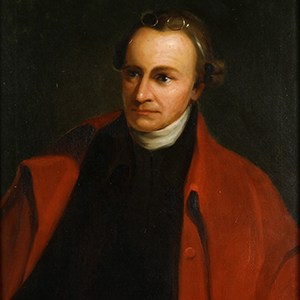Patrick Henry played an integral role in America’s fight for independence. However, he was also a staunch opponent of the U.S. Constitution and one of the country’s most vocal Antifederalists.
Early Life
After failing as a planter and a merchant, Henry eventually found success as a lawyer and a politician. Henry served in the Virginia House of Burgesses and the Continental Congress. He was one of the earliest and most vocal critics of British tyranny. He spoke out against the Stamp Act of 1765, arguing that only the colony had the authority to levy taxes on its citizens. While some believed Henry’s statements were treasonous, they ultimately helped spur on the resistance to British rule.
The Virginia Convention
Henry is most famous for the speech he delivered to the Virginia Convention on March 23, 1775 in an effort to convince the state to join the war for independence. He stated:
Our brethren are already in the field! Why stand we here idle? … Is life so dear, or peace so sweet, as to be purchased at the price of chains and slavery? Forbid it, Almighty God! I know not what course others may take; but as for me, give me liberty, or give me death!
The resolution passed, and Virginia organized a militia to join the fight. With regard to Henry’s impassioned speech, fellow Virginian George Mason wrote: “Every word he says not only engages but commands the attention, and your passions are no longer your own when he addresses them.”
Later Career
Henry served as Governor of Virginia from 1776 to 1779 and from 1784 to 1786. While he was nominated to serve as one of Virginia’s delegates, Patrick Henry did not attend the Constitutional Convention. According to Henry, he “smelt a rat in Philadelphia, tending toward the monarchy.” He was likely referring to Alexander Hamilton, who favored a national government that resembled the British monarchy.
Henry served as a delegate to the Virginia ratifying convention, where he argued vehemently against the Constitution. Henry maintained that the new system of government allocated a dangerous amount of power to the national government and provided too few protections for individual rights. When the Constitution was approved, Henry advocated in favor the Bill of Rights and was instrumental in its passage.








